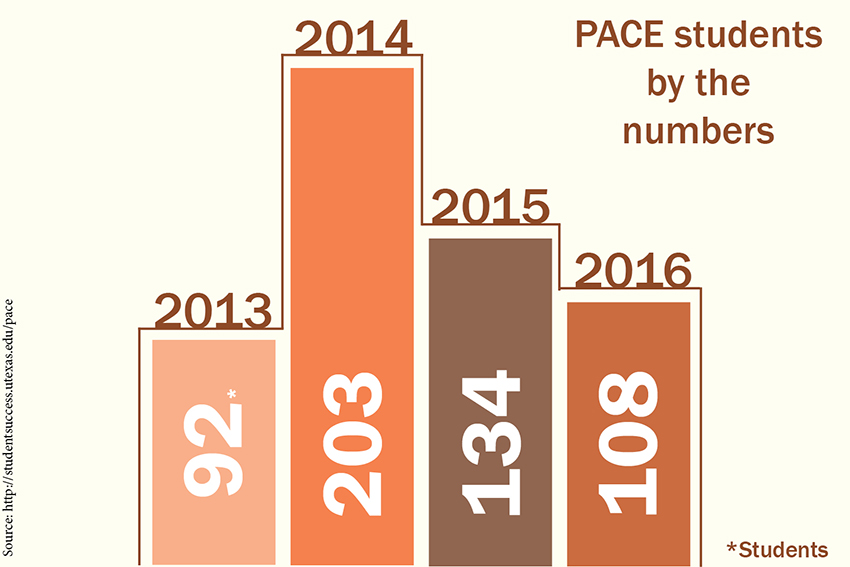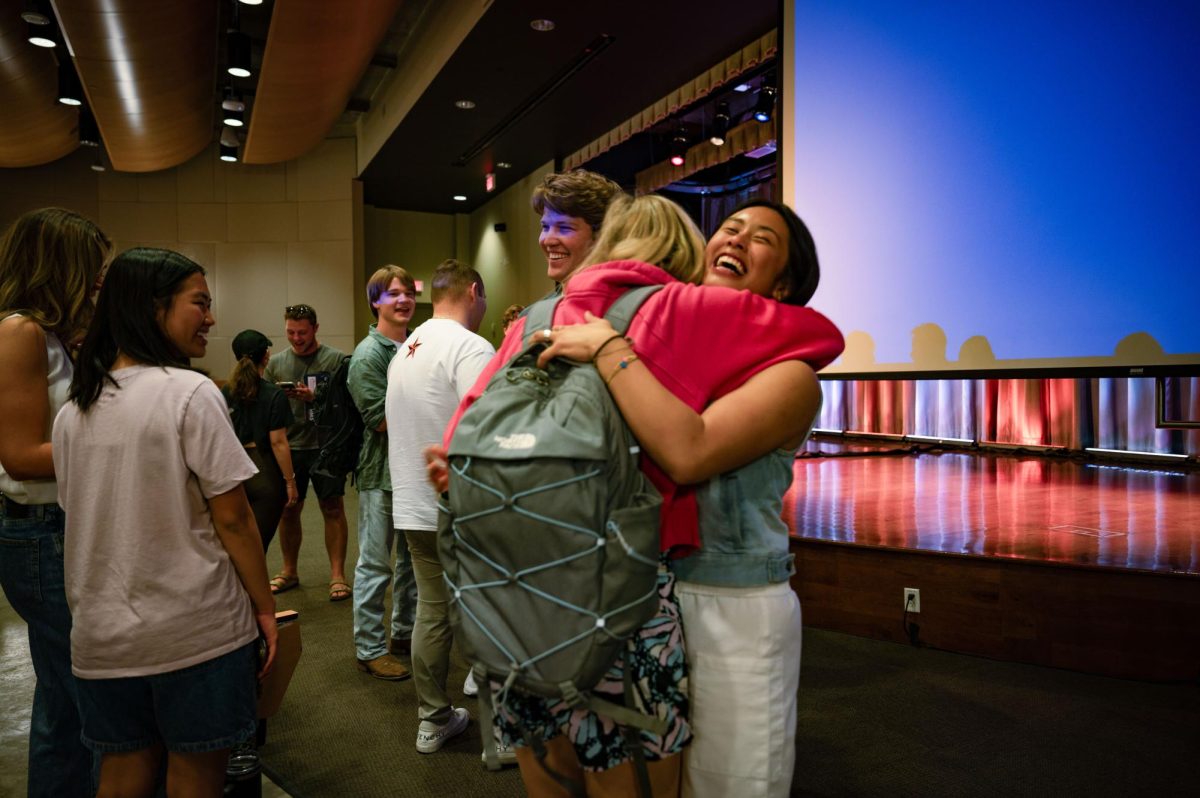The Path to Admission through Co-Enrollment program allows qualified students who were initially denied to UT Austin to earn admission through co-enrollment, but may be limiting some students’ desire to study certain majors or to even enter the program because of its restrictions.
PACE started in the fall of 2013 and is partnered with Austin Community College and run through the UT Office of Admission. PACE students receive automatic acceptance to the College of Liberal Arts after completion of the program, which consists of 24 hours at ACC with a cumulative 3.2 GPA and at least six hours at UT with a 2.0 GPA.
“The PACE program is designed for students who apply to UT as freshman and who are not admitted, but would be the next group of students who we would likely admit,” said Cassandre Alvarado, director of special initiatives in enrollment and graduation management. “We have far more qualified applicants than we have available space, so PACE was created in order to provide an outlet for us to allow more students to benefit from a UT education.”
Alvarado said PACE students are automatically admitted to liberal arts because the college has the most available space. Students may also apply to other colleges and compete for admission, but can still study as a liberal arts major if denied.
PACE Coordinator J.R. Schmitt said it is yet to be determined whether PACE students would ever be allowed automatic admission to other colleges.
“If a student is not comfortable graduating with a liberal arts degree, we encourage them to consider other options,” Schmitt said.
Freshman PACE student Lynette Adkins said she chose PACE because she wanted to live in Austin, and would rather study a liberal arts major at UT than study business at another school.
“I wanted to be in McCombs and major in either marketing or international business,” Adkins said. “The more I talked to my PACE advisors, the more I think they try to get you to lean into liberal arts, because that’s the only thing that we are guaranteed. I’m definitely more okay now with staying in liberal arts, if I have to … if I don’t get into McCombs”
Christiana Logue, a PACE freshman the first semester the program began, is now a senior majoring in sociology and health and society, minoring in biology and completing a forensic science certificate.
Logue was denied admission to UT after graduating in the top 9 percent of Georgetown High School, barely missing the automatic standard at the time of top 8 percent. Logue was accepted to Baylor University, but chose PACE instead.
“I realized I wouldn’t be happy unless I came here,” Logue said. “It was worth it — not to be a full-time student and work my way up to it, than being somewhere else and trying to fit in.”
Since being at UT, Logue has changed career paths several times.
“I’ve had four different majors and in three different schools here,” Logue said.
Originally denied to the communication school, Logue entered PACE. After finishing PACE, she applied to natural sciences, was denied and placed in undergraduate studies. Through an internal transfer, she was able to get into natural sciences, but ultimately decided against it. Currently, she is in the liberal arts college.
However, some PACE students found their fit with more ease.
Biochemistry sophomore Brandy Dunham said she had no problem getting into the College of Natural Sciences after PACE.
“I kept up my GPA while taking classes at ACC and UT, and got to know my professors and PACE advisors so they could write me letters of recommendation,” Dunham said.
Dunham turned down acceptance into colleges such as the University of Georgia, the University of Tennessee and the University of Alabama in order to be in PACE and
attend UT.
She said PACE made the transition from high school to college easier, since she was used to smaller classroom settings, coming from a private school.
“Overall, it’s been good,” Dunham said. “I don’t regret my decision to do PACE.”




















